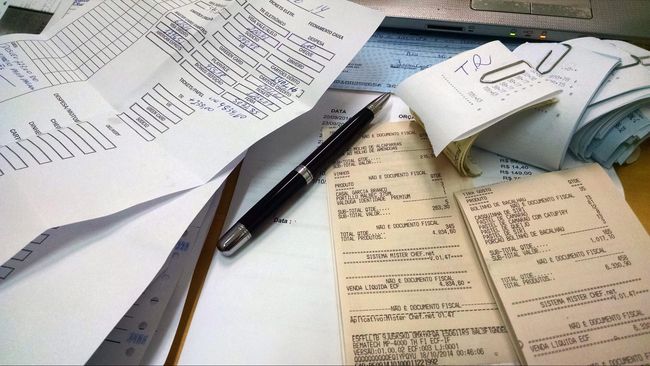Jakarta, CNN Indonesia –
Eid synonymous with an increase in expenditure due to the emergence of various new necessities, starting from going home, buying new clothes, zakat, and so on. Most of the, spending during the month of Ramadan and Idul Fitri tend to be consumptive.
The increase in the financial needs of the community ahead of Lebaran is usually used by companies fintech peer to peer lending or loans online (loan) to offer a loan. Not only legal lending companies, illegal lending companies are also guerrilla looking for customers who need funds during Eid.
Finansia Consulting financial planner Eko Endarto said that the loan funds used for consumptive purposes actually carry risks because the funds are not used as capital. In addition, interest on loan tends to be higher than bank loans, so there is a concern that customers will not be able to return the funds according to the deadline.
“Why is it problematic because the loan is for consumptive purposes, so there is definitely a problem in the future if he can’t pay it. Moreover, there is a discourse on THR in installments, even though there is a daily interest rate, so the debt may not be paid because the increase in daily interest was higher than the total. THR for him later, “he told CNNIndonesia.com.
There are a number of things that people can do so they don’t get trapped by pinjol during Eid. If forced to take funds from lending, the debtor must ensure their ability to pay so that they are not burdened with borrowing interest.
The following is a strategy to escape from borrowing to meet the needs of Ramadan and Eid as summarized CNNIndonesia.com:
Spending plans
OneShildt Financial Planning Financial Planner Budi Raharjo said that spending planning during Ramadan and Eid is the most crucial thing in order to be free from borrowing. Through this planning, the public can predict the amount of funds needed during Ramadan and Eid.
“We have to make predictions first, how about spending in Ramadan and Eid, we can reflect on the previous year’s spending patterns, we will check first,” he said.
The benefit of planning, he said, is to prevent large conditions of pegs rather than poles, aka cash flow deficits during Ramadan and Eid. Understandably, many seasonal expenses during Ramadan and Eid did not occur in the previous months.
“If there is a lack of financial planning preparation, it will be during Ramadan and Eid al-Fitr cash flow (cash flow) is disrupted, especially if there are expenses to be made, so that in the end, they will definitely be motivated to borrow, “he said.
Next, the community compares the planned expenditure to income. Budi suggested that the expenditure planning be prepared well in advance of Ramadan and Eid, the goal is that the community has more time to prepare funding.
If the expenditure is greater than the income, he advises people to reduce or rearrange their expenses. As much as possible, he continued, people avoid loans either in the form of loans or from other sources to meet expenses during Ramadan and Eid.
“If we have predicted what the expenses will be, then we cross check it with our income during Ramadan, the point is that it must be sufficient,” he said.
Meanwhile, Eko suggested that people should adjust their consumption patterns with financial means during Ramadan and Eid.
“To be sure, we have to live or undergo Eid according to our abilities, according to what is there, don’t force yourself by borrowing,” he said.
Legal Pinjol
If forced to borrow from pinjol, Eko appealed to the public to apply for loans to legal loan companies that are registered or licensed at the Financial Services Authority (OJK). As a regulator, OJK regularly updates the list of registered and licensed loans.
As of February 23, 2021, the number alone has reached 148 companies.
“Borrow in applications registered with the OJK, because they have a code of ethics and rules on how to handle customers properly,” he said.
According to him, loan withdrawals through legal loan tend to be safer. This is because they are bound by the rules in the OJK itself and from associations, such as credit interest rates, loan terms, collection methods, customer data protection, and so on.
As is known, there have been many victims of illegal lending whose personal data was accessed by loan companies. Not to mention, the illegal loan collects credit in ways that are not in accordance with the rules.
“They (legal loans) have clear rules and there is a code of ethics that must be implemented and there is an agreement with the OJK, so it is relatively safer. So, if you are forced to borrow, try to be registered or licensed at the OJK,” he said.
Financial education continues to the next page …
Measure Ability to Pay
–
– .


